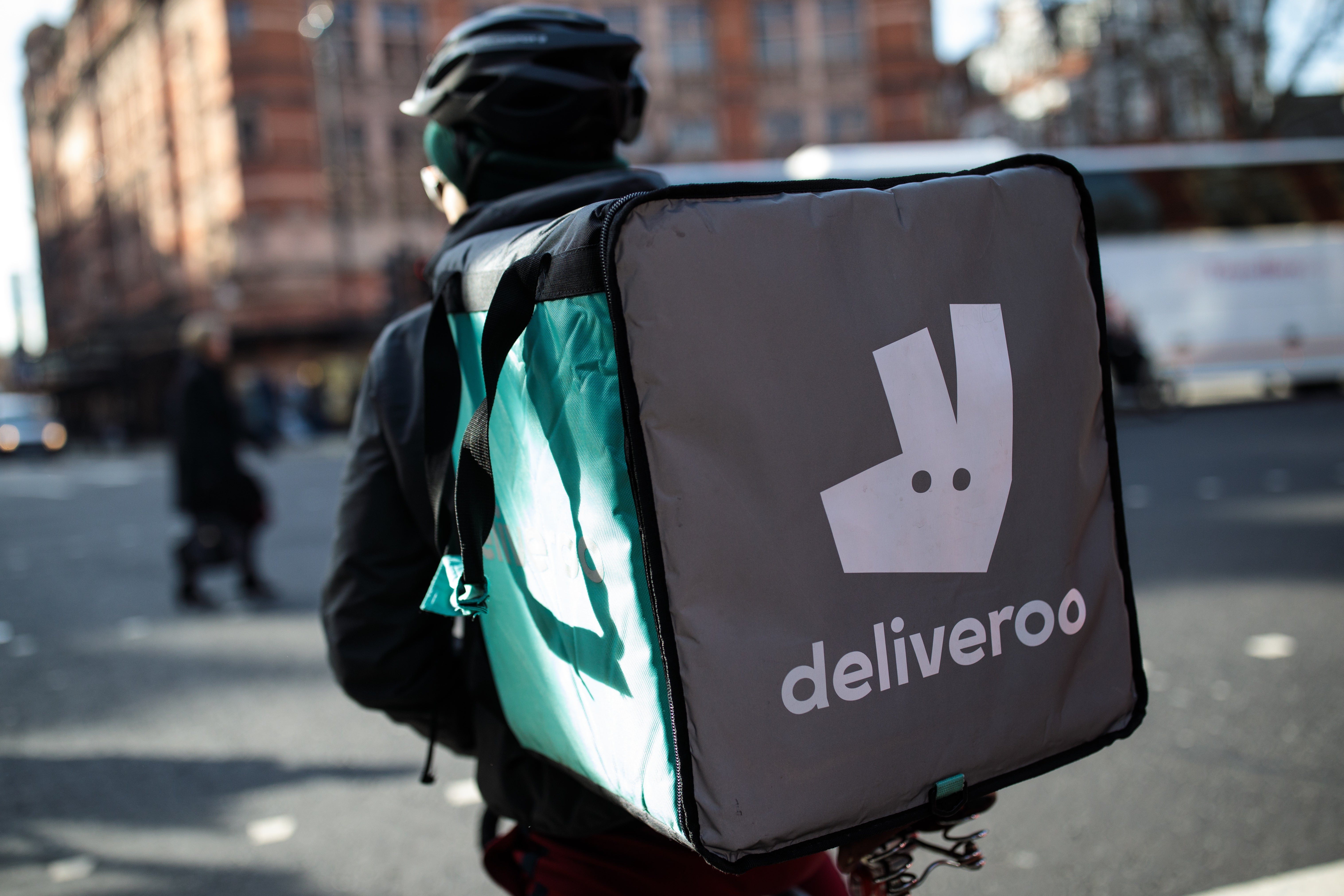Sunak gets win as Deliveroo lines up London float – but what about its riders?
The company will be a beneficiary of new rules designed to tempt tech companies to the City but, James Moore writes, the controversy over its role in the gig economy continues to cast a pall


Under fire over inequality and Budget tax rises, Rishi Sunak was in need of a win. He found one by calling up a Deliveroo rider and chowing down on the company’s London flotation.
I know, I know, it didn’t go quite like that. Deliveroo’s announcement of its pick of London as the venue for its flotation did, however, make reference to Lord Hill’s review of the listing rules, which Sunak set in train and has enthusiastically supported.
So the announcement could hardly have been better timed for the chancellor.
The review matters because it recommends that companies with “dual class shares” be allowed to qualify for a premium listing on the London Stock Exchange.
This should make it much more attractive to tech company founders who like to retain control when they take their companies public. The rule change, when it’s formally adopted, means they can give their shares more voting clout than the ones they sell to you, me and the fund managers that look after our ISAs and pensions, while securing a seat at the corporate top table.
You need a premium listing to qualify for the big kids club that is the FTSE 100 and getting into the index is no small thing. A spot in the footsie gives you get greater visibility, gets you more attention from analysts, makes it cheaper to raise fresh funds when you need them. There’s also the prestige factor, which shouldn’t be underestimated.
Trouble is, the rule change means scrapping one share one vote, something corporate governance experts have fought long and hard to achieve.
Deliveroo founder and CEO Will Shu says him having more clout through the issue of dual class shares will confer on the company “the stability to take decisions to enable the company to execute on its long-term strategic vision in order to create long-term shareholder value”.
He might have a point there. The star of the dual class arrangement would be Google, which has been able to use it to think long and put investment over dividends and/or share buybacks.
The outlook of institutional investors on the public markets is lamentably short term. Bad deals keep getting done because of their willingness to sell to any bidder that comes knocking with a 20 per cent premium.
With his outsize voting power, Shu will be able to bat that sort of thing aside. But even if he proves to be the poster boy for the new rules, and moves the company to a more normal structure after three years as he has promised, they mightn’t be used so well by others.
How would you feel, for example, about granting a premium listing with dual class shares to, I dunno, Mike Ashley? His House of Fraser Group, formerly Sports Direct, has caused more than enough headaches under the existing rules.
Sunak and Lord Hill and the London Stock Exchange and much of the City will consider it worth the occasional controversy if Deliveroo is followed by a bunch of other tech unicorns and Ocado and Just Eat finally get to make some internet/tech company friends on Britain’s flagship stock index.
While they’ve abandoned an important principle, doing so brings London into line with the other big markets and puts it on a better competitive footing with them.
I have savings in the market and a bit of tech fizz would do surely them no harm.
Whether Deliveroo is really the company you’d want to play the role of flagship for this brave new world is, however, an open question.
It’s one of those companies that tends to get filed under “things that make you go hmm” because of its role in the gig economy.
The proposed dual class shares are really far less of a problem than is the treatment of its freelance riders who deliver the meals people use the company’s app to order up.
There have been protests and court cases. The Supreme Court’s ruling that Uber’s drivers are workers and should be entitled to benefits such as holiday pay threw the spotlight on to Deliveroo too, which has been fighting a similar battle but has argued that its model is different.
The company’s flotation announcement was adroitly timed to make a friend of the chancellor and to generate some good PR through portraying itself as London’s next tech champion.
But we shouldn’t forget that it has only become that through the efforts of those riders, and the question of their rights isn’t going anywhere.
Join our commenting forum
Join thought-provoking conversations, follow other Independent readers and see their replies
Comments
Bookmark popover
Removed from bookmarks